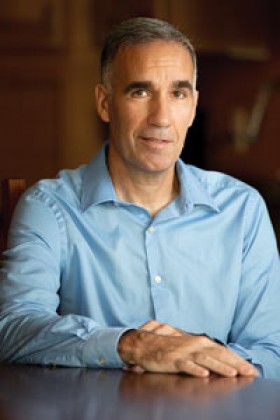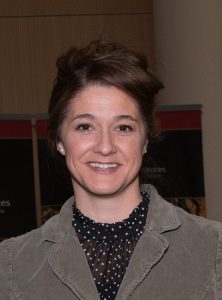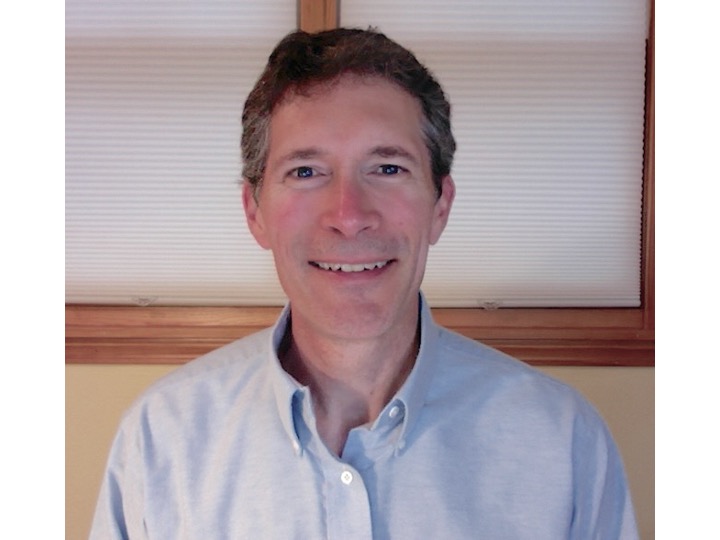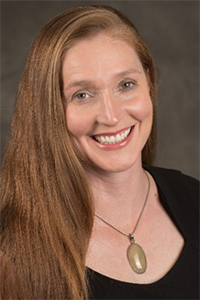UW–Madison researchers are leveling up Wisconsin's weather and soil monitoring capabilities with Wisconet, a new network of interconnected environmental weather stations. From wind speed to soil moisture, the data collected across multiple points in location and time will drive research and inform decision-making in sectors ranging from agriculture to energy.
Join us on February 27th at 4:30 p.m. CT to learn all about the Wisconet and how these stations can be used to help Wisconsinites across the state understand and adapt to changing weather patterns and a changing climate.
Moderator
Chris Kucharik
Professor of Plant and Agroecosystem Sciences, UW–Madison

Chris Kucharik is a Professor of Plant and Agroecosystem Sciences. His research program is largely interdisciplinary, incorporating field work on cropping systems ecology and ecosystem modeling in a framework that is geared towards understanding the impacts of climate change and land management on the provisioning of ecosystems goods and services – more specifically crop and bioenergy feedstock production, water quantity and quality, carbon sequestration, and climate regulation. His field research largely takes place across Wisconsin, and he uses agroecosystem modeling tools across a continuum of spatial scales from the precision agriculture scale to the regional (e.g., Midwest USA) scale.
Panelists
Amanda Gevens
Chair, Professor, Department of Plant Pathology, UW–Madison

Amanda Gevens is a Professor, Department Chair, Extension Pathologist, and Administrative Director of the Wisconsin Seed Potato Certification Program with the University of Wisconsin-Madison Department of Plant Pathology. Dr. Gevens has been in her post since 2009. Her expertise in pathogen ecology and integrated disease management of potatoes and vegetables is internationally recognized, leading to over 50 national and international presentations and over 370 Wisconsin presentations. She has co-authored over 50 refereed publications with nearly 2000 citations, over 80 peer-reviewed technical reports, and more than 45 trade journal articles. Dr. Gevens has contributed over 200 articles in extension conference proceedings and field day reports, hundreds of vegetable production newsletter articles, and has been the coordinating editor of the UW-Madison Division of Extension Vegetable Crop Updates newsletter for over a decade. She is a highly accessible and responsive extension specialist with engagement in regulatory aspects of disease management in high-value crops. Dr. Gevens has a deep commitment to translational science and the mentoring of undergraduate and graduate students (13 PhD and 5 MS since 2009). Dr. Gevens was recently awarded the UW-Madison CALS Fritz Friday Chair for Vegetable Production Research in recognition of her impactful vegetable research.
Steve Vavrus
Wisconsin State Climatologist

Steve Vavrus is director of the Wisconsin State Climatology Office and a Senior Scientist in the University of Wisconsin-Madison’s Nelson Institute Center for Climatic Research, where he serves as assistant director. He has extensively researched Wisconsin and Midwestern climate, extreme weather, and Arctic climates. Steve also serves as co-director of the statewide Wisconsin Initiative on Climate Change Impacts (WICCI) and is a member of its Climate Working Group. He is also a member of the Wisconsin Heat Health Network, the Wisconsin Drought Task Force, and the American Association of State Climatologists. Steve earned master’s and doctoral degrees in meteorology from the University of Wisconsin-Madison and received a bachelor’s degree in meteorology from Purdue University.
Sarah Marquardt
Senior Service Hydrologist, NWS Milwaukee/Sullivan
Sarah is the Senior Service Hydrologist at NWS Milwaukee/Sullivan where she ensures her office provides the best possible forecast information for heavy rain and flood potential to partners and the public. This includes forecasting flash flooding and river flooding, providing spring flood outlooks, coordinating river flood thresholds with local communities, and drought monitoring. She does outreach with other agencies and local organizations to monitor and message flood risk and drought conditions. Sarah has been interested in weather since she was a kid, listening to weather alerts on NOAA Weather Radio. She is a graduate of UW Madison and earned her master’s degree from UW Milwaukee.
potential to partners and the public. This includes forecasting flash flooding and river flooding, providing spring flood outlooks, coordinating river flood thresholds with local communities, and drought monitoring. She does outreach with other agencies and local organizations to monitor and message flood risk and drought conditions. Sarah has been interested in weather since she was a kid, listening to weather alerts on NOAA Weather Radio. She is a graduate of UW Madison and earned her master’s degree from UW Milwaukee.
Megan Levy
State, Local, Tribal, Territorial Project Manager, Office of Cybersecurity, Energy Security, and Emergency Response (CESER), U.S. Department of Energy

Prior to joining the U.S. Department of Energy’s Office of Cybersecurity, Energy Security, and Emergency Response (CESER) State, Local, Tribal, Territorial team in September of 2022, Megan spent two decades in energy efficiency, security, and resilience both with the low-income weatherization program and with the Wisconsin State Energy Office as Energy Emergency Assurance Coordinator and Resilience Strategist. From 2017 through 2022, Megan served as the Co-Chair of the National Association of State Energy Officials (NASEO) Energy Security Committee. Megan is a graduate of the University of Wisconsin-Madison.
